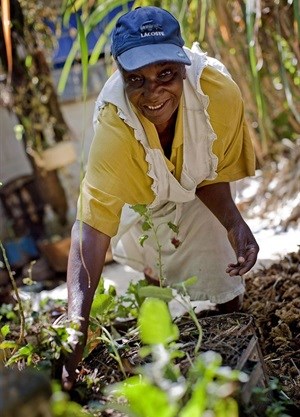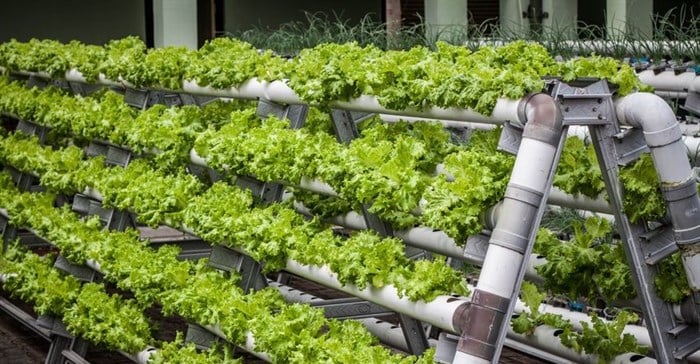All across Africa, populations are growing rapidly. Many people are vulnerable to malnutrition and other food-related diseases, limited healthcare and high rates of unemployment.
The result is that more and more people are streaming towards cities hoping to find jobs and earning an income. According to the United Nations, in 2013, sub-Saharan Africa's annual urban growth rate was 3.6% - almost double the world average. Importantly, as this migration takes place, an increasing number of urban gardens and farms are taking root too.
This growth in urban agriculture is helping poor people cope with food scarcity and hunger. These urban populations are taking control of much of their own food production, growing crops or raising livestock in backyards or on undeveloped plots of land. This not only helps to alleviate hunger, but also offers many people a viable income as they find markets for their produce. In turn, this reduces the economic burden on productive communities and opens new doors of opportunity as urban informal markets gain traction. Across Africa, stories of resourcefulness in urban agriculture abound as people fight for their livelihood.
So much is being achieved through sheer necessity. Imagine what could be achieved with additional support, knowledge, and resources?
Urban farms and farmers of the future
Roadside traders could be transformed into the farmers of the future as community vegetable gardens created along roadsides and rivers are converted into city farms, vertical window food gardens, and horizontal pipe or water gardens. Teaching young people to implement urban agriculture through a variety of modern methods and practices would not only improve their yields and income potential but also give them a sense of achievement and the self-confidence that they are struggling to achieve through meaningful employment elsewhere.
According to a 2017 report published by The Sustainable Development Goals Centre for Africa, the continent has 65% of the world’s arable land. However, food demand in Africa is expected to rise by over 60% by 2050 due to population growth. Simple shifts in thinking can result in better efficiencies and more environmentally friendly produce that is less prone to climatic changes, and which ultimately has a positive influence on production yields. And with urban farming, we don’t need vast tracts of remote land to make it possible.
Bringing urban farming knowledge to urban communties
In order to transform the urban farming industry into a thriving and growing sub sector, more skills and training are needed. Agriculture education organisations and e-learning platforms such as Agricolleges International will play a pivotal role in bringing the required urban farming knowledge, via mobile devices, to these urban communities. The whole of Diepsloot in Gauteng, for example, with a population of more than 850,000 people, now has permanent access to the internet. Adding access to short crop production and skills development courses at the touch of a button, along with the ability to continue to earn while they learn, will open exciting new opportunities for growth in the sector.
Achieving sustainable food security for both urban and rural citizens remains an important priority for African governments. The reality, however, is that food security depends not only on a tricky balance between knowledge, availability, and affordability but also on coordinated partnerships between the various stakeholders in the agricultural sector.
Re-thinking and redesigning urban agriculture
According to a report by the Food and Agriculture Organisation (FAO) of the United Nations, market gardening in African cities has grown with little official recognition, regulation or support. And while the commercial production of fruit and vegetables provides livelihoods for thousands of urban Africans, and food for millions more, in some cases market gardeners are using ever larger quantities of pesticide and polluted water to maximise returns.
It’s becoming increasingly important to explore newer and more innovative approaches to successful farming. Urban agriculture is one of the techniques considered to be at the cusp of advancements within the sector, and one that can contribute towards the provision of sustainable access to nutritious food.
Considering the way in which our earth is changing, re-thinking and redesigning urban agriculture and what it means in a built-up urban environment is of paramount importance. The number of people migrating to urban areas makes the urban environment a potential and important food basket for sustainable food production and increased employment.
A step towards creating a more sustainable future
South Africa is no stranger to gross inequality and consistently has one of the highest Gini coefficients (measurement of inequality) in the world. Providing food security and sovereignty to marginalised urban ‘boundary’ communities is key to helping free South Africa from its greatest burden of food and health inequality.
If we could educate people to implement urban agriculture with health and sustainability in mind, it would be a great step towards creating a more sustainable future in all countries throughout the African continent.










































